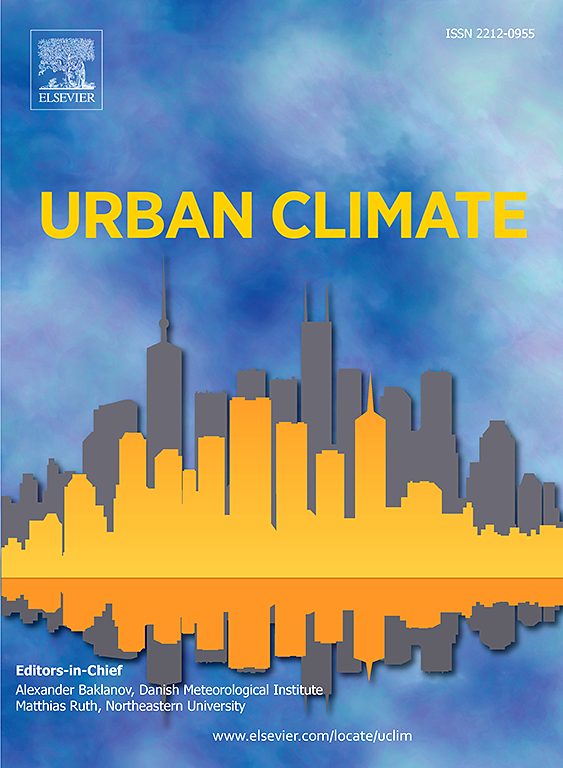Filling gaps in urban temperature observations by debiasing ERA5 reanalysis data
IF 6
2区 工程技术
Q1 ENVIRONMENTAL SCIENCES
引用次数: 0
Abstract
Gaps in urban meteorological time series complicate the analysis and usage of datasets. Various gap-filling techniques exist, including the debiasing of ERA5 reanalysis data. Unfortunately, an extensive evaluation of these debiasing techniques is lacking for urban datasets. This research compares five gap-filling techniques for urban temperature time series, including three debiasing techniques that employ a learning period and time window to take into account the seasonal and diurnal ERA5 temperature bias. The evaluation, performed by filling manually constructed gaps, reveals that short gaps are best filled by linear interpolation, while longer gaps benefit from ERA5 debiasing. The bias correction is crucial for urban locations, with all debiasing techniques performing similarly. The exact length and placement of the learning period and time window have limited impact on the performance, however a symmetrical placement of the learning period with a minimum length of 10 days and a small time window provide the best outcome. Based on these results, a gap-filling algorithm is designed which efficiently fills all gaps in temperature time series by selecting the most optimal technique for each gap. The algorithm can reproduce the urban heat island effect, although a small over- or underestimation might occur.求助全文
约1分钟内获得全文
求助全文
来源期刊

Urban Climate
Social Sciences-Urban Studies
CiteScore
9.70
自引率
9.40%
发文量
286
期刊介绍:
Urban Climate serves the scientific and decision making communities with the publication of research on theory, science and applications relevant to understanding urban climatic conditions and change in relation to their geography and to demographic, socioeconomic, institutional, technological and environmental dynamics and global change. Targeted towards both disciplinary and interdisciplinary audiences, this journal publishes original research papers, comprehensive review articles, book reviews, and short communications on topics including, but not limited to, the following:
Urban meteorology and climate[...]
Urban environmental pollution[...]
Adaptation to global change[...]
Urban economic and social issues[...]
Research Approaches[...]
 求助内容:
求助内容: 应助结果提醒方式:
应助结果提醒方式:


